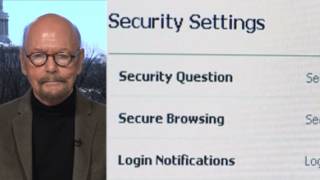
Guests
- Ramzi Kassemprofessor of law at the City University of New York School of Law, where he directs the CLEAR project, which stands for Creating Law Enforcement Accountability & Responsibility.
Some New York City residents are concerned over the use of a ”WANTED” alert message for the bombing suspect Ahmad Khan Rahami that was distributed automatically to millions of phones across the area Monday morning. It may be the first time in the United States that the nationwide Wireless Emergency Alerts system was used to transform residents into participants in a regionwide manhunt. It sparked widespread concerns that people, particularly Muslims and people of color, who were not Rahami could be mistaken for him and targeted. This comes as hate crimes against the Muslim community have surged nationwide, including in New York City, where just last week a Scottish tourist wearing traditional Muslim religious clothing was set on fire in the middle of 5th Avenue in broad daylight. “It really opens the door, potentially, to acts of vigilantism and to hate crimes,” says lawyer Ramzi Kassem. “I was really alarmed that the authorities went ahead with this unprecedented move without really knowing what the consequences might be for individuals other than the person they were after.”
Transcript
AMY GOODMAN: Professor Ramzi Kassem, I wanted to get your response to this alert that was issued yesterday morning. It was right before we walked into the studio, like 7:54 in the morning. It’s the ”WANTED” alert message that was distributed automatically to millions of phones across New York City and New Jersey. And it said, when you look down—it was buzzing. It sounds like an alarm in every building, because everyone’s phone goes off at once. ”WANTED: Ahmad Khan Rahami, 28-yr-old male. See media for pic. Call 9-1-1 if seen.” It’s believed to be the first time in the U.S. that this nationwide Wireless Emergency Alerts system was used. Your response to what took place?
RAMZI KASSEM: Yeah, I mean, like you and, I think, like millions of New Yorkers, I was surprised to see that on my phone. I had never seen anything like that before. I mean, I’ve gotten the AMBER alerts in the past, and I’ve gotten similar warnings about, you know, flood alerts.
AMY GOODMAN: Right, used in—it’s believed to be the first time it was used in this way.
RAMZI KASSEM: And so, you know, I sort of did some digging and realized it was the first time it was used in this way. And my—and automatically, I started to think, “Well, what are the consequences of this?” I mean, it’s not something that they’ve studied. It’s not something that they’re doing in a deliberate way based on, you know, any research as to what the consequences might be. And on one level, I’m grateful that the individual was apprehended as quickly as he was apprehended, because we didn’t have the time to see the consequences of this sort of unprecedented alert play out, because my main concern was that it really opens the door, potentially, to acts of vigilantism and to hate crimes. And so, I was really alarmed that the authorities went ahead with this unprecedented move without really knowing what the consequences might be for individuals other than the person they were after.
AMY GOODMAN: It is not clear if this is what ultimately led to his being found in New Jersey, but that is the narrative that’s developing right now, that this went out, and a bar owner in Linden sees this guy sleeping in the alleyway, you know, a hoodie over his head. He calls police. Police come, recognize him. And as they wake him up, he immediately draws his gun, they said, and there was a shootout. He’s alive, they’re alive, and he’s now being operated on in the hospital.
RAMZI KASSEM: Yeah, I mean, but still, it is a drastic measure, and the end does not justify the means. I don’t think it’s a step that the authorities should take lightly without further study, without further consultation. And there—to my knowledge, there wasn’t much public discussion around the possibility of this sort of measure being taken in these kinds of cases. And so, where does one draw the line at this point? Who decides when this kind of measure can be taken? And again, my main concern is: Has there been enough thought dedicated to the possible unintended consequences of taking these kinds of measures in these types of cases?













Media Options